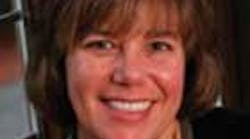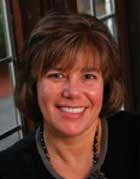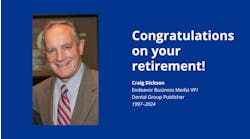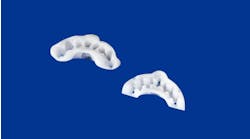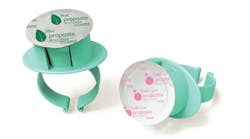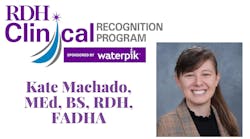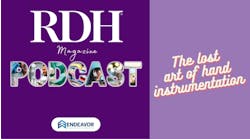by Ann-Marie C. DePalma, RDH, MEd, FAADH
Empowering dental hygienists who want to increase their potential by providing the next step in clinical practice is a hallmark of the continuing education programs presented by Joan Tonner, CDA, RDH, MA. From the local anesthesia course entitled “Open Wide, Target Inside,” to “Instrumentation Refresher for the Dental Hygienist” and “Extraoral and Intraoral Clinical Assessment,” Joan helps participants increase their potential. Burnout is a term frequently tossed around in hygiene circles, but with the information Joan offers, hygienists don’t have to worry about becoming victims of burnout.
Joan’s primary program is “Open Wide, Target Inside, The Local Anesthesia Advantage,” which provides a review of the cranial nerves and knowledge of the osseous anatomy that is essential to the administration of local anesthesia in dentistry. Many hygienists who participate in the program want a review of the anatomy and anesthesia administration before they become involved in a full-fledged anesthesia program. Recent graduates as well as “seasoned” hygienists who may have forgotten concepts from their hygiene education can benefit from this course.
Basic anesthetic armamentarium is also discussed during the three-hour program, which provides didactic and hands-on components. With the hands-on component, Joan provides participants with double the amount of continuing education credits (in most states), and uses sound educational pedagogy to include all learning styles. The program teaches hygienists effective dental hygiene anesthetic procedures. Many dentists who have participated in the program are enlightened by the depth and breadth of the knowledge discussed. However, this course is not a substitute for a full-fledged anesthesia program (depending on state regulations that vary from 32 to 72 hours) that allows participants to become certified/licensed in local anesthesia.
Upon completion of the program hygienists will:
- Describe head and neck cranial and osseous anatomy
- Apply effective local anesthesia techniques to particular regions of the oral cavity
- Demonstrate appropriate armamentarium used in local anesthesia administration
- Simulate anesthesia administration using a variety of simulation materials
Joan became involved in teaching local anesthesia administration when she was part of the pain management course offered to dental hygiene students at Mount Ida College in 2001. As the course coordinator and second-year clinic supervisor, Joan worked closely with the dental hygiene faculty to provide effective technique and sound judgment in anesthesia administration. In January 2005, Massachusetts became the 36th state to allow clinical hygienists to provide anesthesia to their patients. Joan and other dental hygiene faculty developed a continuing education program that was on the forefront of CE for hygienists in Massachusetts by basing it on their experiences with the dental hygiene students.
Joan offers two other clinical hands-on programs — an instrumentation refresher, and an extra/intraoral clinical assessment program. The refresher program teaches hygienists re-entering the field or those interested in reviewing basic instrumentation, up-to-date skills used in routine scaling and periodontal debridement. The extra/intraoral clinical assessment program reviews head and neck anatomy relevant to the areas dental hygienists are responsible for examining. All of Joan’s programs are energetic with audience participation, humor and helpful learning tools intertwined for easy comprehension. She often uses an assistant during the hands-on portions to facilitate learning.
Joan is a graduate of the Middlesex Community College Dental Hygiene program, received her bachelor’s degree from Northeastern University, and her master’s degree from Framingham State College. Also a certified dental assistant, Joan received her local anesthesia certification in 1999 and her local anesthesia permit for Massachusetts in 2005. She has worked in private practice, a hospital dental clinic setting, and is an assistant professor at Mount Ida College.
Joan has been involved in teaching CE ever since she organized programs as chair of her local ADHA component, when CE became mandatory for Massachusetts hygienists in 1982. The world of presenting was a natural progression for her once she entered the academic arena, and she chose a subject that would be fresh and exciting for the region.
Joan has been a member of ADHA since serving as the first president of JADHA (Junior American Dental Hygienists’ Association, the precursor to SADHA) at Middlesex. Upon graduation, she was instrumental in re-establishing the Middlesex Component of the Massachusetts Dental Hygienists’ Association, where she served as president, delegate, and numerous other officerships. She has also served on MDHA boards, as a delegate to the ADHA annual session, and has received numerous honors and awards.
She is currently concerned about the lack of interest dental hygienists display toward their profession. She believes strongly that it is one’s ethical responsibility to be a member of one’s professional association. Dental professionals need to stay abreast of current trends and paradigm shifts regarding technology and science. Also, the networking achieved through professional associations is important in not only advancing one’s profession, but the health of all people.
Joan passionately supports her two adult children throughout their endeavors, contributes to the profession of dental hygiene through her support of ADHA and community affiliations, and is an integral part of a teaching faculty. She also enjoys reading about the true-life challenges that people overcome.
For information about Joan’s programs, contact [email protected].
Author’s Note
I have known Joan almost as long as I have been a hygienist. She is a wonderful friend and mentor. Best wishes as she embarks on a new adventure in her life.
About the Author
Ann-Marie C. DePalma, RDH, MEd, FAADH, is a Fellow of the American Academy of Dental Hygiene, member of ADHA and other professional associations. Ann-Marie presents continuing education programs for hygienists and dental team members and has written numerous articles on a variety of topics. She can be reached at [email protected].
